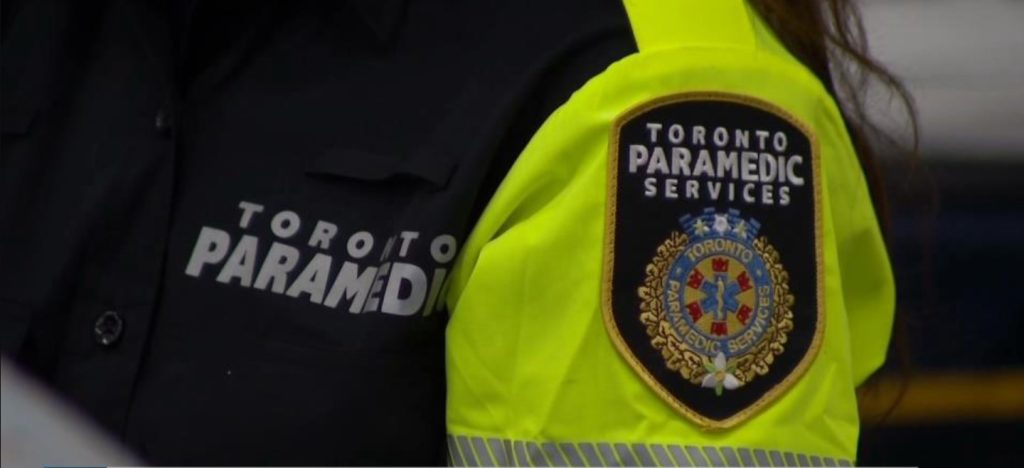Here’s a look at mayor-elect Olivia Chow’s campaign promises
Posted June 27, 2023 11:34 am.
Last Updated June 27, 2023 12:02 pm.
Olivia Chow has been elected as Toronto’s 66th mayor following Monday night’s byelection.
The former city councillor and NDP MP captured 37 per cent of the popular vote and is set to become the first Toronto mayor who is a person of colour — and the first woman mayor since amalgamation.
Her win as a progressive candidate ends more than a decade of conservative rule at city hall.
Chow will have be faced with a nearly $1 billion budget shortfall, a housing affordability crisis and aging public infrastructure, among other issues. Her campaign focused on building “an affordable, safe and caring city, where everyone belongs.”
Here’s a look at some of her campaign promises.
Housing
Building more affordable housing, with the city as the developer, along with helping better-protect renters from eviction quickly became key promises in Chow’s campaign.
Here are more pledges she made in regards to housing:
- Create the Secure Affordable Homes Fund with a $100 million annual investment to stop renovictions by helping purchase, repair and transfer affordable rental apartment buildings to not-for-profit, community, and Indigenous housing providers.(i.e. land trusts.)
- Build 25,000 rent-controlled homes on city-owned land. There will be a minimum of 7,500 affordable units, including at least 2,500 rent-geared-to-income units.
- Double the reach of Toronto’s Rent Bank and nearly triple the reach of the Eviction Prevention in the Community program for those with complex needs.
- Invest in strengthening RentSafeTO to make sure tenants live with dignity and scale up the Tenant Support Program to help tenants organize to fight evictions and above guideline rent increases.
- Establish the Toronto Renters Action Committee that will work on anti-renoviction bylaws, advocating for real rent control, reviewing existing policies and programs related to renters, and holding the City accountable to renters.
- Raise the Municipal Land Transfer Tax on luxury homes, with new graduated rates on purchases of homes valued at over $3 million.
Transit
- Create a dedicated, off-street bus rapid transit line – or busway – along the Scarborough RT corridor. Stops will include Kennedy Avenue, Tara Avenue, Lawrence Avenue East, and Ellesmere Road.
- At Ellesmere Avenue, buses will transition to the already planned on-street bus lanes that connect to Scarborough Town Centre
- The total cost of the dedicated bus rapid transit route on the existing RT corridor is estimated at $60 million.
- Change the Gardiner East to an at-grade boulevard from Cherry Street to the DVP to save the city upwards of hundreds of millions of dollars and open up 5.4 acres of land to develop upwards of 8,000 units of housing.
- Get cell service for everyone on the TTC and restore workers in TTC stations to be the eyes and ears of the system.
Mental Health/Community Safety
- Expand the Toronto Community Crisis Service (TCCS) city-wide
- Establish an Emergency Response Transformation Team to improve 911 wait times.
Libraries
- Expand library hours and ensure every Toronto Public Library (TPL) branch is open seven days a week.
Taxes
Chow said property taxes will go up, but hasn’t specified by how much, other than saying the increase would be “modest.” She has argued there’s a need to look at what services are priorities and see what the rate of inflation will be first.
Ontario Place
Chow repeatedly criticized Ford’s proposal to move the Ontario Science Centre in east Toronto to a redeveloped Ontario Place on the city’s waterfront.
She vowed to halt the plan to move the Science Centre. Instead of adding yet another amenity downtown, she has said the Ford government should consult with the local community on how to improve the Science Centre in its current location.
Strong mayor powers
Chow has vowed not to use largely untested “strong mayor” powers granted by the province, framing them as an anti-democratic effort by Ford to meddle in city politics.
Chow immigrated to Canada when she was 13 and first entered politics in 1985 when she was elected as a school trustee. She then spent 13 years as a city councillor before heading into federal politics as an NDP MP.
She first ran for mayor in 2014 but finished third behind former Mayor John Tory and Doug Ford.
The city clerk’s office says the election results will be certified by Wednesday and Chow will officially take over as mayor on July 12. The mayor-elect requested to take office on that date, according the city’s clerk.
With files from The Canadian Press








